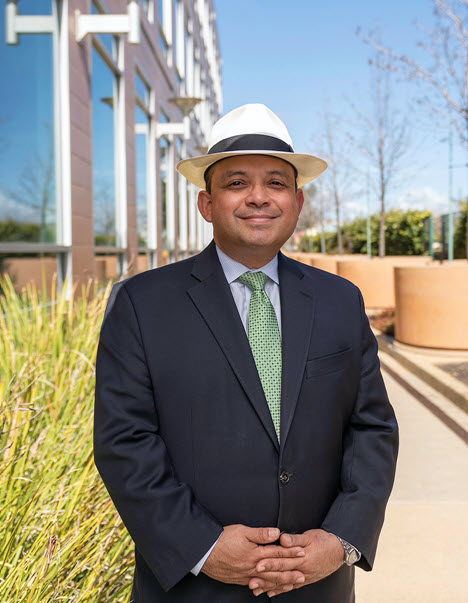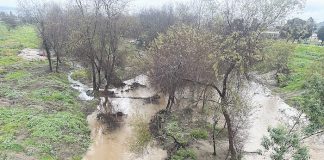Three years ago, California did something truly remarkable and forward-looking by approving historic legislation that allocated a record $6 billion to bring equitable and affordable high-speed broadband service to all Californians.
The multi-year investment aimed to close the digital divide by building the largest “Middle Mile” and “Last Mile” high-speed broadband internet project in the nation.
However, with the state facing a record $44.9 billion state budget deficit this year, California lawmakers must not backtrack on that full commitment by slashing the $2 billion in needed broadband funding to complete the work. Budgets are a reflection of values, and there’s no proposal more valuable for the present and future of disadvantaged communities than ensuring they have access to a 21st century economy, education, healthcare and opportunities.
In July 2021, I was invited to speak at the bill signing ceremony of the enacting legislation Senate Bill 126 with Governor Gavin Newsom at Traver Joint Elementary School in rural Tulare County. During the COVID-19 pandemic, two little girls in my supervisorial district became the human face of California’s digital divide when they were photographed accessing the internet for their classes outside a Taco Bell in East Salinas.
The landmark package under SB 126 included $3.25 billion to build an open-access, state owned Middle Mile network, $2 billion for Last Mile broadband connections to connect homes and businesses with local networks, and $750 million for a Loan Loss Reserve Fund to help local governments and nonprofits secure financing for additional local broadband infrastructure.
The California Department of Technology quickly went to work to map the 10,000 miles of broadband fiber infrastructure, known as the Statewide Middle Mile Network Map, after receiving public input from across the state.
But due to inflation and increasing construction costs, the original funding would only allow the state to finish 7,800 of the promised 10,000 miles. Last August, the Department of Technology placed the remaining miles in a “Phase 2” portion of the plan, subject to future funding allocations. Digital equity organizations soon raised alarm over the plan that delayed investments in low-income communities, such as portions of South Los Angeles, East Oakland, communities in the Central and Coachella Valleys, and even in my own county of Monterey.
In response, the Newsom Administration pledged support to fully fund all 10,000 miles and placed an additional $1.5 billion into his January proposed budget of which $250 million would be included in next fiscal year’s budget and the remaining $1.25 billion would be included in the 2025-26 budget. Many saw this move as the Governor keeping his pledge to get all the promised work across the finish line.
However, when the Governor’s May Revision of the budget was released last month, the $1.5 billion was completely removed to the dismay of many across the state. Additional broadband funding was reduced for Last Mile projects and the Loan Loss Reserve Program for a total of $2 billion in reductions.
This is an unacceptable regression considering that over 2 million Californians remain unconnected to the internet. Even among those with access, 15.4 million Californians are still stuck in one-provider monopolies, many of whom are from lower income, Latino, African American, tribal and rural communities.
As if that were not compelling enough, the federal Affordable Connectivity Program (ACP) that provided a $30 to $75 monthly subsidy to 2.9 million Californians ended last month, making the mission of providing universal access to high-speed broadband only more daunting.
As a former State Assemblymember who served during severe budget deficits after the Great Recession, I certainly understand that this year’s budget situation is a very difficult one. But California made a promise to expand broadband for all, and we must complete the full 10,000 miles as quickly as possible and not leave unconnected and under-connected communities waiting.
Any and all measures must be considered to fulfill the promise to our most vulnerable children and communities. We must continue this investment and we must reconsider a state bond, as the Legislature did in 2021, in order to fully fund and complete the unfinished work to close the digital divide once and for all in California.
Luis A. Alejo is a Monterey County Supervisor and former State Assemblymember, and a board member of the California Middle Mile Advisory Committee and the California State Association of Counties.











Sorry Louie the state is broke we have to back to AOL